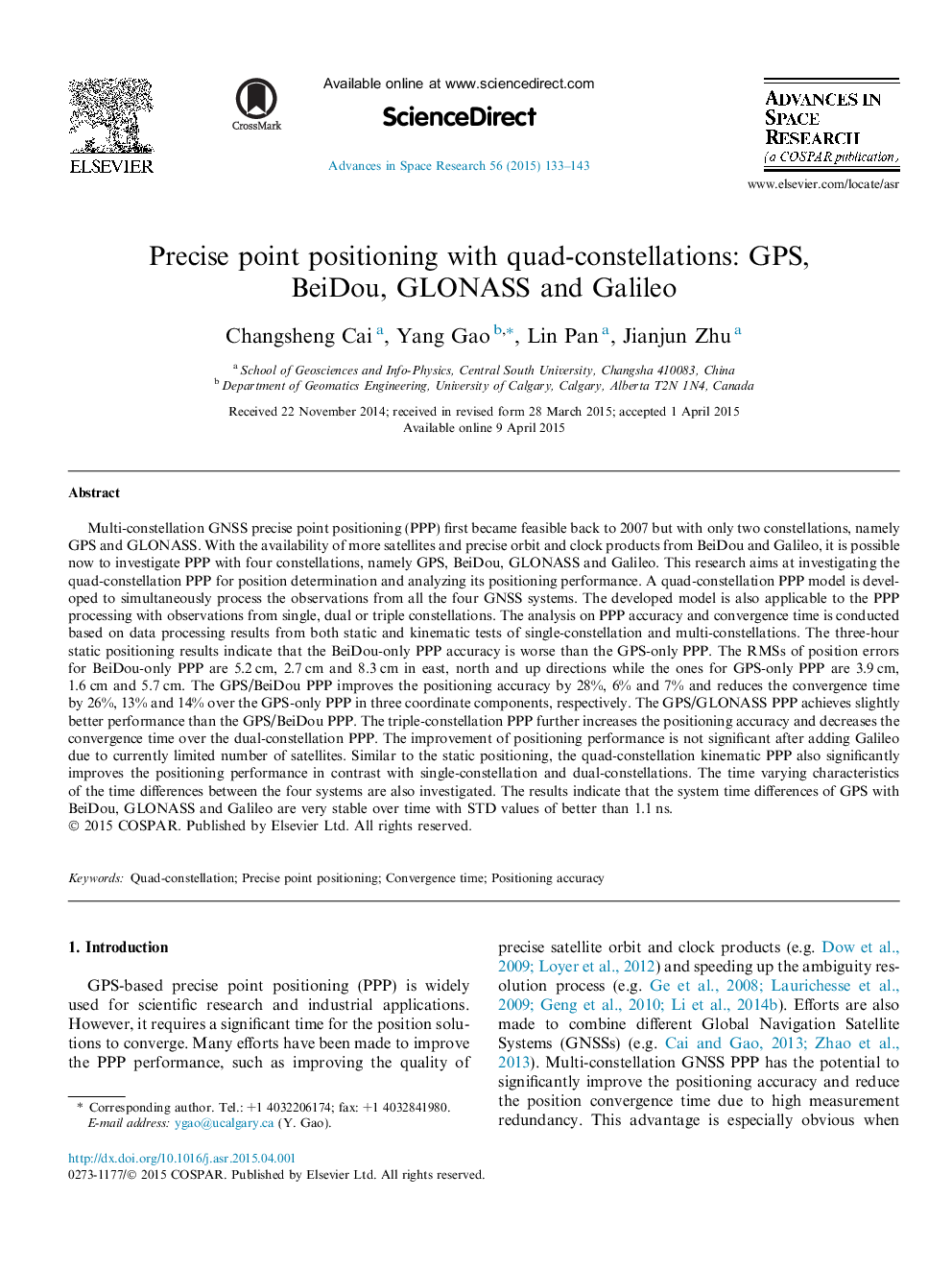| کد مقاله | کد نشریه | سال انتشار | مقاله انگلیسی | نسخه تمام متن |
|---|---|---|---|---|
| 1763788 | 1020024 | 2015 | 11 صفحه PDF | دانلود رایگان |
عنوان انگلیسی مقاله ISI
Precise point positioning with quad-constellations: GPS, BeiDou, GLONASS and Galileo
دانلود مقاله + سفارش ترجمه
دانلود مقاله ISI انگلیسی
رایگان برای ایرانیان
کلمات کلیدی
موضوعات مرتبط
مهندسی و علوم پایه
علوم زمین و سیارات
علوم فضا و نجوم
پیش نمایش صفحه اول مقاله

چکیده انگلیسی
Multi-constellation GNSS precise point positioning (PPP) first became feasible back to 2007 but with only two constellations, namely GPS and GLONASS. With the availability of more satellites and precise orbit and clock products from BeiDou and Galileo, it is possible now to investigate PPP with four constellations, namely GPS, BeiDou, GLONASS and Galileo. This research aims at investigating the quad-constellation PPP for position determination and analyzing its positioning performance. A quad-constellation PPP model is developed to simultaneously process the observations from all the four GNSS systems. The developed model is also applicable to the PPP processing with observations from single, dual or triple constellations. The analysis on PPP accuracy and convergence time is conducted based on data processing results from both static and kinematic tests of single-constellation and multi-constellations. The three-hour static positioning results indicate that the BeiDou-only PPP accuracy is worse than the GPS-only PPP. The RMSs of position errors for BeiDou-only PPP are 5.2Â cm, 2.7Â cm and 8.3Â cm in east, north and up directions while the ones for GPS-only PPP are 3.9Â cm, 1.6Â cm and 5.7Â cm. The GPS/BeiDou PPP improves the positioning accuracy by 28%, 6% and 7% and reduces the convergence time by 26%, 13% and 14% over the GPS-only PPP in three coordinate components, respectively. The GPS/GLONASS PPP achieves slightly better performance than the GPS/BeiDou PPP. The triple-constellation PPP further increases the positioning accuracy and decreases the convergence time over the dual-constellation PPP. The improvement of positioning performance is not significant after adding Galileo due to currently limited number of satellites. Similar to the static positioning, the quad-constellation kinematic PPP also significantly improves the positioning performance in contrast with single-constellation and dual-constellations. The time varying characteristics of the time differences between the four systems are also investigated. The results indicate that the system time differences of GPS with BeiDou, GLONASS and Galileo are very stable over time with STD values of better than 1.1Â ns.
ناشر
Database: Elsevier - ScienceDirect (ساینس دایرکت)
Journal: Advances in Space Research - Volume 56, Issue 1, 1 July 2015, Pages 133-143
Journal: Advances in Space Research - Volume 56, Issue 1, 1 July 2015, Pages 133-143
نویسندگان
Changsheng Cai, Yang Gao, Lin Pan, Jianjun Zhu,